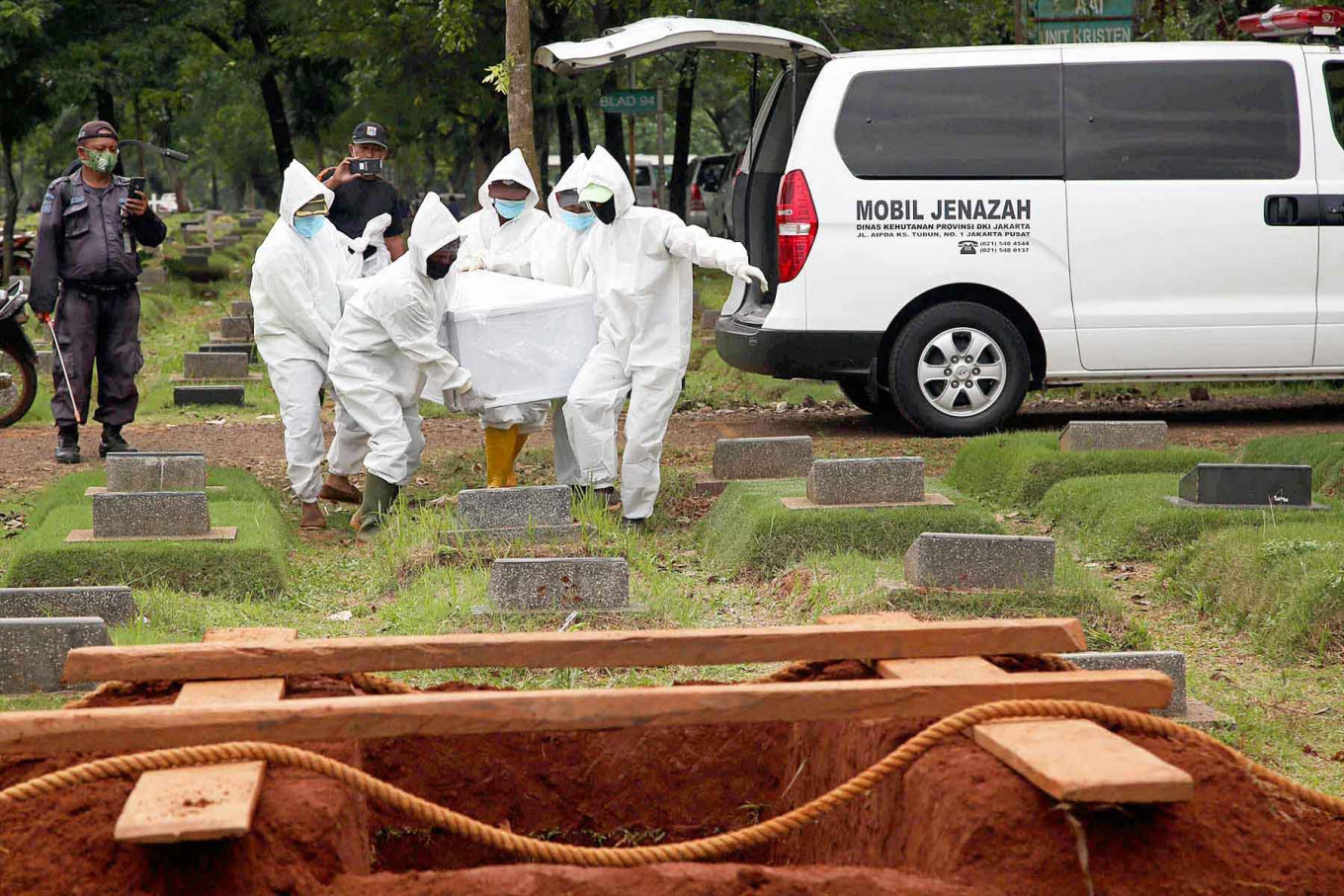Popular Reads
Top Results
Can't find what you're looking for?
View all search resultsPopular Reads
Top Results
Can't find what you're looking for?
View all search resultsJakarta tightens rules again as hospitals struggle to keep up
Capital’s active cases hit record high at more than 17,000.
Change text size
Gift Premium Articles
to Anyone
J
akarta returns to full large-scale social restrictions (PSBB) on Monday as the central government plans broader Java-Bali restrictions amid the increasing number of COVID-19 cases.
The decision to implement a new PSBB phase until Jan. 25 was announced on Saturday by Jakarta Governor Anies Baswedan, who cited the city’s rising number of COVID-19 cases, describing the situation as worrying. He said the restrictions were aimed at preventing hospitals from being overwhelmed with COVID-19 patients and staff from stretching thin.
"Our active cases hit its highest point — 17,383 people [on Thursday]. These active cases are people who tested positive for COVID-19 and have yet to recover; they are undergoing treatment at health facilities or self-isolation,” Anies said in a press statement on Saturday.
He blamed the two consecutive long weekends during the Christmas and New Year holidays — which saw increased mobility among the public — as one of the factors that triggered the spike in infections.
This will be the second time Jakarta is reimposing full PSBB measures, a policy Anies said in September was pivotal in slowing down infections. At the time, his administration decided to pull the “emergency brake” to stop the gradual reopening of several services following a surge in cases caused by the long weekends for Independence Day and Islamic New Year in August. The first time Jakarta imposed full restrictions was from April to early June, about a month after the first COVID-19 cases were detected in the capital in March.
"Past experience showed that stricter restrictions were effective in reducing the number of active cases,” Anies said.
Epidemiologists have persistently warned that any extended holiday may speed the already widely spread infection, driving the demand for hospital beds ever higher.
Read also: Case spike leads to curbs in Java, Bali
Anies said Jakarta’s COVID-19 mitigation needed support from stakeholders across sectors, particularly as the outbreak in the capital affected neighboring regions and vice versa. He cited research that found 26 percent of the 63,742 positive COVID-19 test results examined by labs in Jakarta in December were residents of Bogor, Depok and Bekasi in West Java and Tangerang in Banten.
“The same goes for health facilities in Jakarta. Between 25 and 27 percent of patients receiving treatment in Jakarta’s health facilities are non-Jakarta residents, mostly from Bogor, Depok, Tangerang and Bekasi,” he said.
He added that Jakartans were already familiar with the past restrictions applied in various sectors. New measures include a work-from-home policy for 75 percent of employees of nonessential industries and online learning for students. As a comparison, the full PSBB policy in place from mid-September to mid-October last year required all nonessential workers to work from home.
Under the new policy, essential sectors, healthcare facilities and construction projects are allowed to operate at full capacity with strict health protocols.
Read also: Anies balks at imposing partial lockdown despite resurgence in cases
The new policy requires businesses and public places to limit their occupancy and operational hours. Shopping centers and restaurants, for instance, must be closed by 7 p.m. Restaurants can now only operate for dine-in services at 25 percent capacity, a less strict requirement compared to the past two waves of PSBB measures that completely banned dine-in services.
Places of worship will also be limited to 50 percent capacity, while other public spaces, as well as social and cultural activities, will be put on hold. Places of worship were temporarily closed during the first PSBB wave. Meanwhile, limitations for public transportation remain largely the same as past policies in April and until recently.
“This is the time we have to be very strict [in enforcing health protocols]. We must flatten the curve until the [COVID-19] vaccines can be distributed to all of us,” Anies said.
Jakarta makes up a significant chunk of daily new cases in the country. The city recorded 2,753 and 2,711 daily cases on Saturday and Sunday, respectively, bringing the total tally to 206,122 cases by Sunday.
Nationwide, Indonesia saw a growing number of daily cases last week, hitting all-time record high of 10,617 new cases on Friday to bring the total to 808,340 cases that day.










